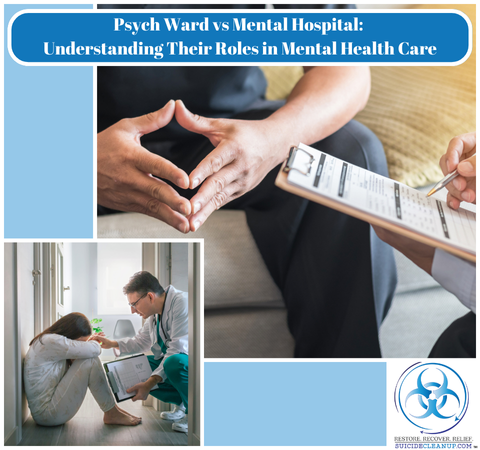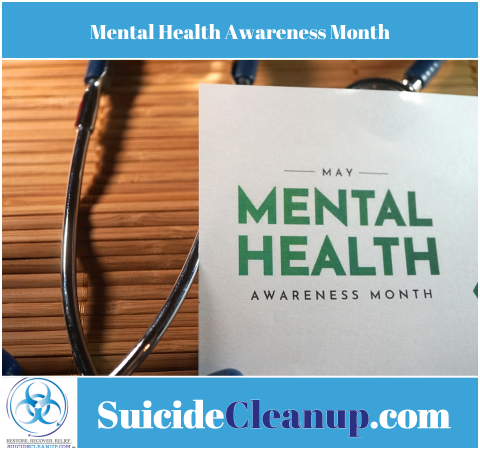
Famous Failed Suicides To Remind You To LIVE
August 31, 2021
Why Do Rural States Have High Suicide Rates?
September 17, 2021
The Holmes-Rahe life stress is a test therapists use to index common top life stressors to reduce out of pocket costs.
The world is in crisis mode right now. A global pandemic for the last year and a half has created trauma and a heightened sense of awareness to the global population. On top of the general stress of what is happening in the world with war, disease, economic meltdowns, homelessness, and other factors, the tragedies that unfold in our personal lives, either due to these public crises or not, drastically increase our levels of stress, despair, anxiety, and depression.
According to the Holmes-Rahe stress scale, there are several major life changing events that might call for therapy. The stress scale indexes common top life stressors so that those that meet the criteria qualify for assistance covered by insurance and reduced out of pocket costs. What are some examples of these stressors? Take a look below. Are there any that are going on in your life right now?
Most Negative Stressors in Life
- Death of a loved one: Perhaps the most sudden change, death impacts the lives of anyone close to the deceased immediately. A prolonged illness can be stressful because of the anticipation factor as well as watching someone fall into decline and begin the dying process. However, an untimely death, such as a car accident, suicide, or even a homicide can take those who remain by surprise, leaving them with so many questions and pieces of a life that has now ended to put back together. This why we are help with the cleanup, so you don’t have to physically and mentally expose yourself to that trauma. And if you are grappling with sudden funeral costs, you may want to read on how you can throw a low cost funeral.
- Divorce: In divorce, those involved are mourning the death of a relationship as much as you would the death of a person. The biological process for dealing with divorce or any other life change affects the amygdala the same as a physical trauma such as death. Over time, the body reacts to stress with physical pain, production of cortisol, which enhances the trauma response of fight or flight, and in moments of serious stress, the body will adjust its biological responses accordingly. Over time, these responses might create physical stress on the body, such as heart disease, diabetes, stroke, or even some forms of cancer. Divorce is especially grievous if children are involved and the divorce involves high-conflict.
- Moving: Moving can bring about many emotions. When the body is faced with a major change, such as one that will require an adjustment to a new environment, the body is in a state of constant stress and alert. Combined with making moving arrangements, purchasing a new home, and simply leaving behind a familiar life, moving is very stressful.
- Major illness or injury: A permanent change to the body such as these will result in a psychological and physiological strain. For people who have been dismembered or paralyzed, there is an incredible learning curve to overcome when trying to adjust to these changes. This is especially true when the body survives suicide. Mourning the loss of one’s health, livelihood, and lifestyle comes with the territory, which is why risking suicide is never worth it. Whether it is recovering or succumbing to an illness such as cancer, dementia, ALS, or other major illnesses, or a debilitating injury that changes your life forever, you will face all of the elements of stress that can compound problems with the situation.
- Job loss: During a recession, companies downsize to cut their losses. With downsizing comes layoffs and companies closing, leaving a recession-induced depression. As bank accounts dry up, and people equate their self-worth with their success in their chosen profession, it is no wonder the loss of a job can impact someone’s identity in such a powerful way.
Most Stressful Positive Situations
You might be asking, “how can a stressor be positive?” Remember, a stressor is an event or situation that causes stress — it doesn’t have to be negative and it doesn’t have to be major. Joyous occasions, like marriage and graduation, can be stressful life events that result in positive trauma. The expectations and anxiety around good life changing events can be overwhelming. Here’s a few examples of life changing events you may want:
- Birth of a child: Babies are a lot of work. Sleepless nights, childhood illnesses, the endless appointments for shots, clothes, and the general pressure of what is expected of parents are extremely stressful.
- Marriage: A joyous occasion for some, a nightmare for others. A new marriage means bringing together relationships and making adjustments to live and manage family life together. This brings together anxieties of what to expect and a balancing act that, half the time, results in “misery ever after”.
- Promotion: As you climb that corporate ladder, you might think that a promotion is everything you’ve dreamed of. But with more responsibility comes more work, more culpability, and often more office politics. A promotion might actually bring you closer to career burnout and other factors such as stress, anxiety, paranoia, and depression.
Please note that these are just a few of the common stressors. Please click here to see the full Holmes-Rahe inventory. Remember, a licensed therapist is the only one able to diagnose and advise insurance.
Coping with the Most Stressful Things in Life
Human beings are social creatures. Without a network of support systems, we often find that our quality of life and life expectancy decline. Remember, trauma is necessary to help us grow, adapt, and survive in this ever changing world. Working through it is necessary to be successful. Talking with friends, loved ones, religious leaders, therapists, or other venues designed to support mental health and well-being give us comfort. They help us process what has happened in our lives, and enable us to overcome grief. Reaching out for help is often the first step in recovering from loss or getting back on your feet after a major life-changing event. In addition to emotional support, families often require suicide site cleanup services to manage the aftermath safely.
If this article has helped you or a loved one, please consider sharing the information on Facebook or Instagram with a link back to this article. Thank You





